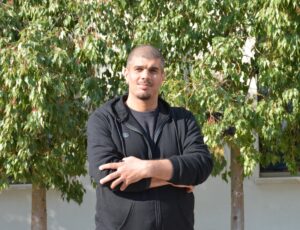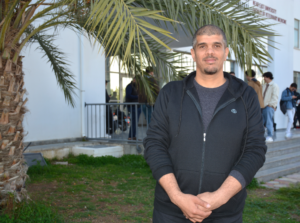Advancing Renewable Energy: Dr. Kassem’s Vision for a Sustainable Future

Can you briefly introduce your research area and what inspired you to pursue this field of study?
My research area focuses on the utilization of renewable energy sources such as wind, solar, and biofuel consumption as energy sources for solving the energy and water crisis. Enhancing the utilization and performance of renewable energy systems is the aim of this multidisciplinary work. I became interested in this field because of the urgent need to address climate change, the rising cost of fossil fuels, and the global energy shortage and water stress. These challenges highlight the significance of achieving the transition to renewable energy sources.
“Renewable energy systems offer the key to a sustainable future by reducing reliance on fossil fuels and combating climate change.”
Through the integration of advanced technology, this type of research contributes to the development of robust, eco-friendly energy systems that can meet growing energy demands while mitigating their adverse environmental impacts. My commitment to advancing energy security and sustainability for future generations aligns with this endeavor.
How do you stay motivated and focused on your research goals in a competitive academic environment?
To stay motivated and focus on my research goals, I conduct extensive research and review the scientific research manuscript. Following the latest findings increases the quality of my work, keeps me up to date on advancements, and inspires new ideas.
“The real impact of research lies in its ability to bridge the gap between academic knowledge and real-world solutions.”
This dedication towards developing significant alternatives in renewable energy is further inspired by the potential impact of my research in addressing energy and climate change challenges.
Collaboration is often essential in research. Can you share any experiences of working with interdisciplinary or international teams?

How do you think your work can contribute to real-world applications or societal impact?
I am focused on addressing critical issues such as climate change, energy, and water scarcity using predictive modeling and renewable energy sources.
“Predictive models are essential tools for governments and industries to make informed decisions for sustainable energy infrastructures.”
My research deals with the optimization of renewable energy systems; this, among others, constitutes my contribution toward building sustainable energy infrastructures. The anticipated benefits of these advancements would be energy security, reduction of greenhouse gas emissions, and improved environmental sustainability.
What is the next step for you in your research journey? Are there any upcoming projects you are particularly excited about?
The next step will be concentrated on modeling and optimization of renewable energy systems by bringing advanced data analytics and artificial intelligence into play.
“Integrating artificial intelligence into renewable energy systems enhances efficiency and resilience against climate variability.”
I am interested in investigating how such strategies will enhance the resilience and efficiency of energy systems to climate variability and natural hazards. Another area I’ll go into is that I’d like to study further the synergy between sustainable management and water, as well as renewable energy, developing integrated solutions for resource-scarce areas.
About Youssef Kassem
Assoc. Prof. Dr. Youssef Kassem received his B.Sc. and M.S. degrees in Mechanical Engineering from Near East University, TRNC, in 2009 and 2011. He pursued further studies in thermo-fluid mechanics at the same university, completing his graduate program in 2017. From 2018 to 2020, Dr. Kassem served as an Assistant Professor at the Faculty of Engineering, Near East University, progressing to the position of Associate Professor from 2020 to the present. In this period, 3 Ph.D. and 30 MSc. students graduated under his technical supervision. His research interests include designing an innovative renewable energy harvesting system for achieving sustainable solutions, modeling, and artificial intelligence applications. His research outcomes have been published extensively in peer-reviewed journals in Web of Science, Scopus, and other internationally indexed as well as conference proceedings and books. He is on the Editor Board of Engineering, Technology & Applied Science Research. In 2024, Dr. Kassem was ranked among the top 2% of the most distinguished researchers worldwide, as reported by Stanford University.